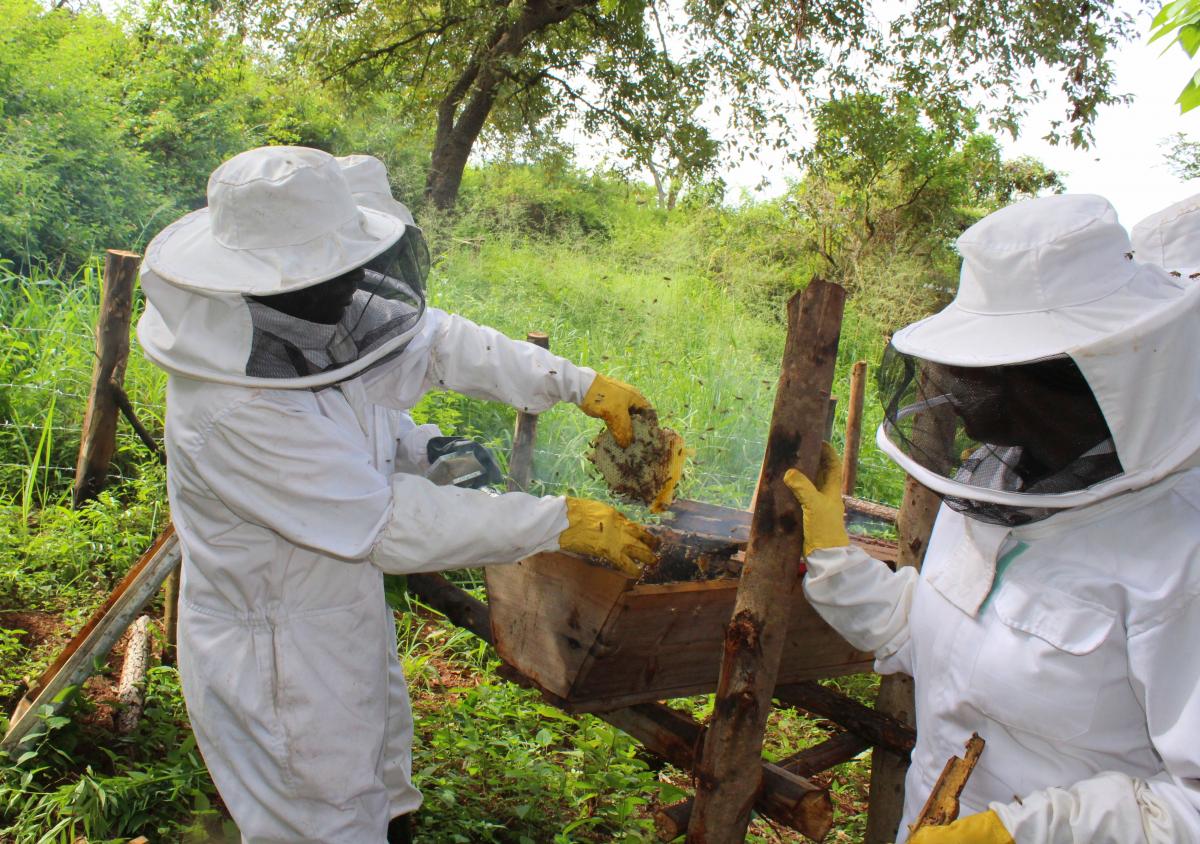Making money from honey thanks to the Skills Development Fund
At the Nyabyeya Forestry College in Masindi, 136 students are
following beekeeping courses. As most of them are enrolled fulltime in the
forestry program, they consider beekeeping a class as any other. But not 20-year
old Peace Nabuzale. She is one of the rare students trying to graduate as a
professional beekeeper: “My fellow
students seem to forget that it is bees which pollinate these forests.”
The beekeeping program is one for busy bees. Students first learn
how to construct a beehive and make a smoker, which is used to calm down the
insects. They then practice how to take care of the bees and harvest their
honey. Finally, students process products such as honey, bee wax candles and
even propolis, a medicinal liquid.
Peace enjoys the program, saying that she loves the opportunities
of beekeeping. “With more bees, more
flowers will get pollinated, which will increase the production. Thanks to bees
you can get high yields from everyday flowers.” Lawrence Ayo, her
instructor, affirms that the school’s honey and candles sell very fast. Bee
products seem an underused source of income in the region.
Thanks to the Skills Development Fund, master beekeepers from
TUNADO (The Uganda National Apiculture Development Organisation) trained 11 of
the school’s beekeeping instructors during a 10-day training. Lawrence is one
of them: “I didn’t have the necessary practical
skills because we mostly taught beekeeping from books. Now I can set an example
for my students.” But it doesn’t stop there. The Skills Development Fund is
also used to buy protective beekeeping suits for the students. Before, these
were only available for the teachers, leaving students vulnerable to painful stings.
As Ambrose Ahibisibwe, the vocational training coordinator of the college puts it: “It is no wonder that beekeeping was not a popular
class. But now students can safely practice out in nature.”
To reduce the threshold for beekeeping, students are taught to
build hives from local materials such as elephant grass or reeds. This is
cheaper than constructing one from timber and iron sheets. “We motivate our students to start beehives
on their own, so they don’t become jobseekers but create jobs themselves. “,
instructor Lawrence adds. Peace already has some hives at her house. “After my training, I want to help my father
in developing our beekeeping business. He is getting too old for it.”
The Skills Development Fund in
Albertine-Rwenzori aims at sustainably improving the quality of technical and
vocational trainings through public-private partnerships, in order to enhance the
youth’s employability.
Laatste nieuws van dit project
Geen nieuws

